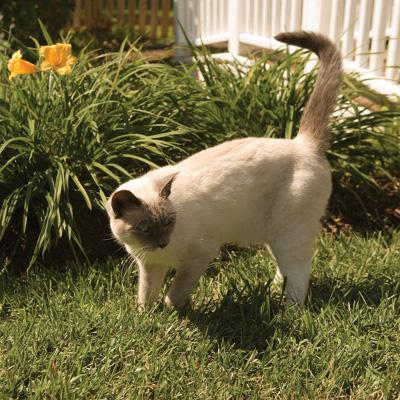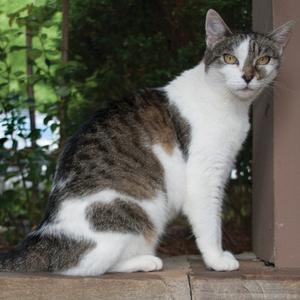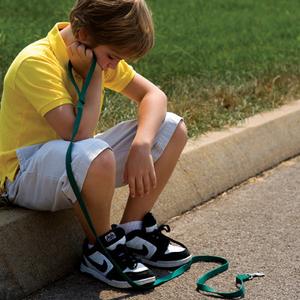You love your cat and want only the best for your feline friend. And it’s likely that your love for your cat extends to all animals, including the wild birds that may nest in the trees and bushes around your home. In fact, you may even keep bird feeders in your yard to attract the local bird population.
If your cat spends time outside, however, you may have seen the results of cat predation, much to your dismay. How can you enjoy your bird feeders and curb your cat's natural hunting behavior?
Keep Cats Inside
The key to preventing cat predation and protecting outdoor wildlife that may frequent your backyard is to keep your cat indoors. And the benefits extend to your cat, too. Indoor-only cats typically live longer lives than cats that go outside. In fact, the average life span of an outdoor cat is 3-5 years, while that of an indoor cat is well over 10 years.
An outdoor cat's life may be shortened by:
-
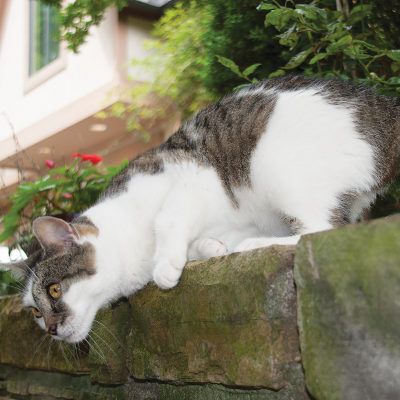 Being hit by cars
Being hit by cars - Being attacked by dogs or other outdoor wildlife
- Suffering wounds from fights with other outdoor cats
- Contracting feline diseases from other outdoor cats
- Getting infested by fleas, ticks, or other pests
- Becoming lost or stolen
Make Outdoor Time Safer for Your Cat
If keeping your cat exclusively indoors is not an option, you can take other steps to help prevent cat predation.
-
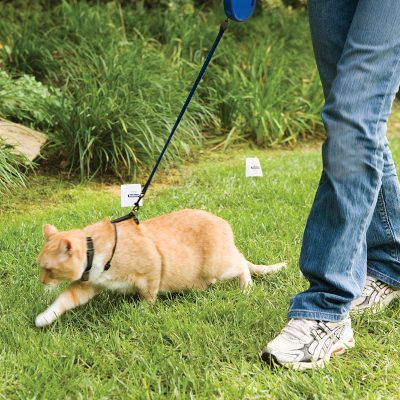 Consider leash-training your cat for supervised outdoor excursions, or allowing your cat outside only when you can supervise his activities.
Consider leash-training your cat for supervised outdoor excursions, or allowing your cat outside only when you can supervise his activities. - Construct an outdoor enclosure for your cat, such as a cat enclosure or modified kennel, so he can enjoy the outdoors without having access to local wildlife.
- Install an in-ground cat fence to keep your cat in certain parts of your yard. Put your bird feeders in a different part of the yard your cat doesn't have access to.
- Try indoor window boxes or ledges that fit inside your windowsill that let your cat nap in the sunshine and fresh air or perch with a view outside.
- Spay or neuter your cat. This may lessen an outdoor cat's hunting instinct, and will have the added benefit of preventing him from contributing to additional litters of kittens.
- Don’t feed your cat outside. Leaving cat food outside will encourage strays and other outdoor cats to visit your yard.
- Keep your cat indoors at dawn and dusk, when your cat and small animals and birds are most likely to be active in your yard.
Special Bells & Collars Reduce Your Cat's Sneakiness
Placing a bell or ultrasonic beeping device on your cat's collar is another way to help curb cat predation, though opinion is divided on the actual success of this approach. Some believe that a cat's natural hunting behavior, moving slowly and deliberately until pouncing at the last second, renders the bell ineffective, as the cat does not move enough to make the bell tinkle. However, a study by the Royal Society for the Protection of Birds in the United Kingdom found that placing a bell on a cat's collar reduced the animal's catches by a third to a half.
A product called the CatBib also has proven effective in preventing a cat predation. The neoprene bib attaches to a cat's collar and interferes with the animal's timing when it pounces, coming between the cat's paws and the bird at just the right moment. The bib does not interfere with the cat's ability to run, climb, scratch, groom, or otherwise be a cat. It simply prevents a cat from catching prey.
Another collar product, the Birdsbesafe collar, is a brightly colored fabric cover that fits over a cat's regular breakaway collar. The bright colors attract the attention of most songbirds, triggering their reaction to fly away from danger. Like the CatBib, the Birdsbesafe collar does not interfere with a cat's normal behavior.
Protect Wildlife with a Few Small Changes
You can also take steps to protect the birds and other wildlife that may visit your yard. Birding experts recommend that you:
-
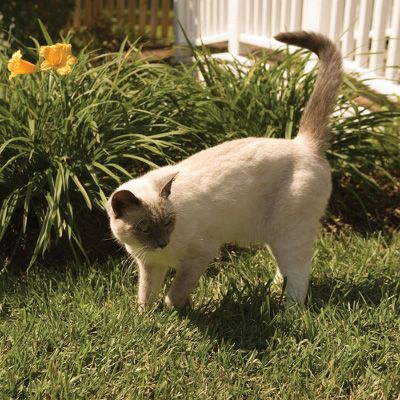 Place bird feeders away from areas cats can hide and stalk unnoticed.
Place bird feeders away from areas cats can hide and stalk unnoticed. - Keep trees and bushes as escape cover for birds off the ground or at least 10 feet away from feeders.
- Use feeders that are positioned well off the ground, such as on a metal pole that a cat can't climb or hung from a branch or hook that the cat can't access.
- Clean up spilled seed regularly.
- Stop feeding birds if necessary.
- To prevent your cat from fishing in an outdoor pond, cover the water's surface with wire netting.
- Protect small wildlife by removing food sources that may attract them, such as pet food or exposed garbage. Keep in mind that vegetable gardens will attract small wildlife. If they do not have a reason to visit your yard, such small animals will not visit as often and become prey to your cat.
By making some changes in your cat's outdoor activities and taking care when placing bird feeders in your yard, you can enjoy visits from wild birds and protect them from harm. A few steps will also allow your cat to enjoy the fresh air and sunshine of the outdoors without impacting the local wildlife population.

